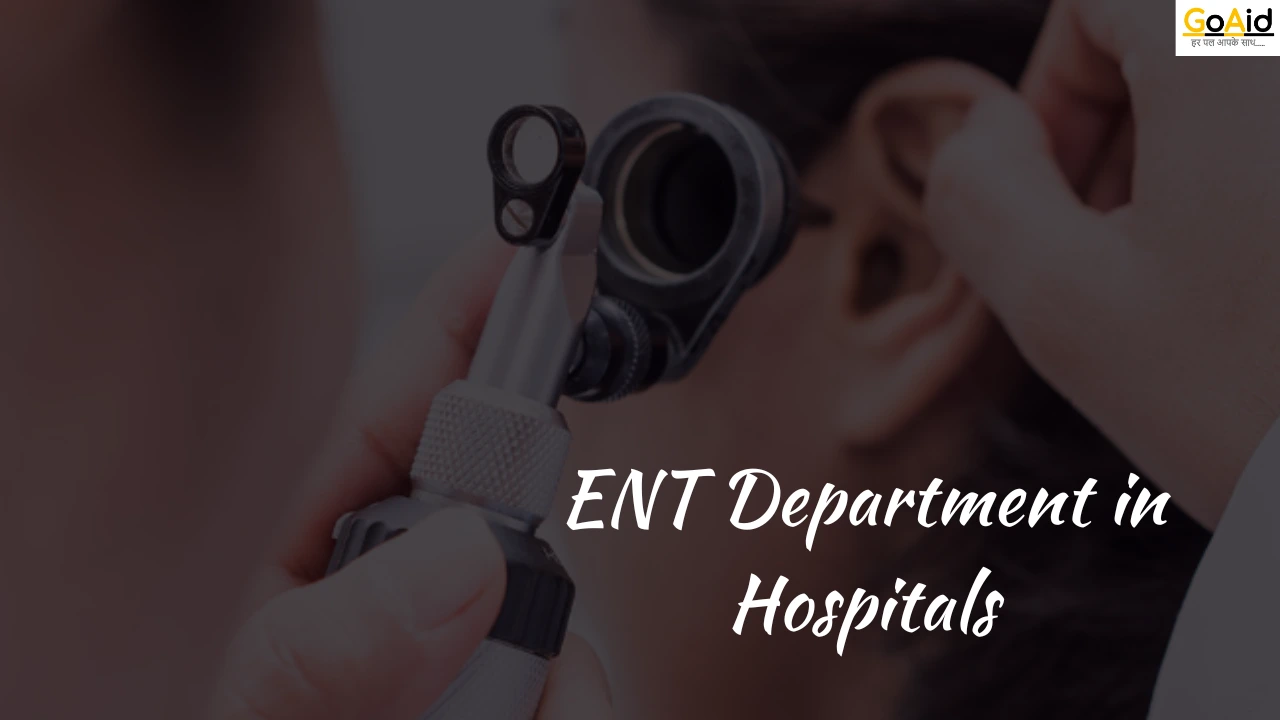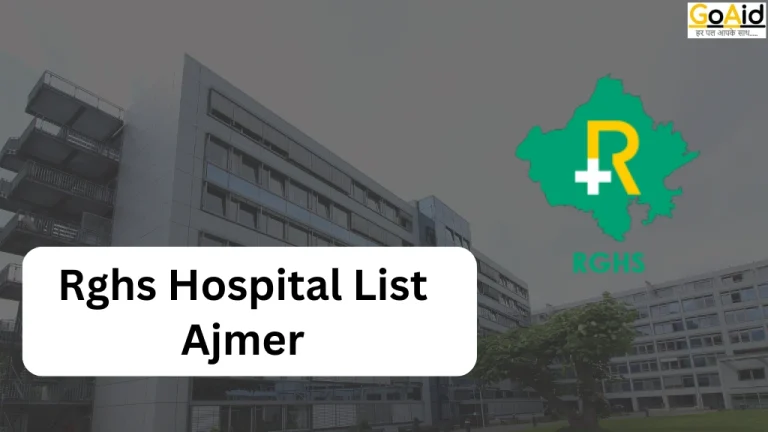If anyone asks you about the Otorhinolaryngology department in hospital, you may have zero idea about it; but what if someone tells you that there is a department in hospital that is dedicated to treating patients with any kind of disorders related to the Ear, Nose, and Throat? Yes, that is the ENT department, medically known as the Otorhinolaryngology department in Hospitals. However, knowing all the details about this department can be challenging. This is why we have helped you by extracting all the details about the Otorhinolaryngology department in the hospital.
In this blog, we have highlighted all the key components and all major details that will help you to gather all the important knowledge about the Otorhinolaryngology department in the hospital such as the meaning of Otorhinolaryngology, what ENT/ Otorhinolaryngology department in hospital? Their roles and responsibilities, features and specifications, essential equipment used in this department, disorders treated in this department, and how you can choose the best otorhinolaryngology department hospital in India. Are you excited to know all the details about this department of the hospital? If yes, then read this blog to the end.
So, let’s start:
Complete Guide to the ENT Department in Hospital
We have added all the key details about the ENT/ Otorhinolaryngology department in hospital. We have mentioned and explained every component of the ENT/ Otorhinolaryngology department in the hospital in this blog below:
What is the Otorhinolaryngology Department in the Hospital? – What does ENT mean?
The Otorhinolaryngology Department, commonly known as ENT (Ear, Nose, Throat), specializes in diagnosing and treating disorders related to these areas along with associated structures of the head and neck. The term ENT encompasses a diverse range of conditions such as sinusitis, hearing loss, allergies, throat infections, sleep apnea, and head and neck cancers.
In hospitals, ENT specialists utilize various diagnostic methods including endoscopies, audiometric tests, and imaging studies to evaluate patients effectively. The department provides comprehensive treatment options ranging from medical management with medications to surgical interventions like tonsillectomy or sinus surgery. They also focus on rehabilitation services for hearing impairments through hearing aids or cochlear implants.
The Otorhinolaryngology department is crucial not only for treating existing conditions but also for preventing complications that can arise from untreated ENT issues. This includes educating patients about proper ear hygiene or managing allergies effectively to prevent recurrent infections. Additionally, ENT specialists often collaborate with other medical fields such as oncology or pulmonology for comprehensive patient care. The department’s commitment to advancing knowledge through research further enhances its ability to provide cutting-edge treatments for patients suffering from complex ENT disorders.
Roles and Responsibilities in Otorhinolaryngology Department in Hospitals
The Otorhinolaryngology Department, commonly known as ENT (Ear, Nose, Throat), specializes in diagnosing and treating disorders related to these areas essential for maintaining overall health. This department plays a critical role in managing various conditions affecting sensory functions.
1. Diagnosis of ENT Disorders
ENT specialists conduct thorough evaluations using endoscopic examinations and audiometric tests to diagnose ear infections, sinusitis, allergies, hearing loss, or throat disorders accurately.
2. Surgical Procedures
The department performs various surgical interventions such as tonsillectomies or sinus surgeries aimed at alleviating symptoms associated with chronic ENT conditions while improving overall patient well-being.
Also Read: Rheumatology Department in Hospitals
3. Management of Allergies
Otorhinolaryngologists develop personalized allergy management plans that may include medications or immunotherapy options tailored specifically based on individual patient sensitivities identified during evaluations.
4. Hearing Assessments
Specialists conduct comprehensive hearing assessments utilizing audiometry tests designed to evaluate auditory function accurately while identifying potential hearing impairments requiring intervention or rehabilitation services.
5. Voice Disorders Treatment
The department addresses voice disorders through specialized therapies aimed at restoring vocal function while educating patients about proper voice techniques necessary for maintaining vocal health.
6. Sleep Apnea Management
ENT specialists diagnose sleep apnea conditions using polysomnography studies while implementing treatment strategies like CPAP therapy designed to improve sleep quality among affected individuals.
7. Patient Education Programs
Educating patients about prevention strategies related to ENT disorders is essential; specialists provide guidance on proper hygiene practices while emphasizing regular check-ups when experiencing symptoms.
8. Collaboration with Other Specialties
The department collaborates closely with other medical specialties when necessary; this interdisciplinary approach ensures comprehensive management of complex cases involving overlapping health issues affecting sensory functions.
9. Research Contributions
Many ENT specialists engage actively in research initiatives focused on advancing knowledge regarding otorhinolaryngological disorders while exploring innovative treatment options available within this field.
10. Community Outreach Initiatives
ENT departments often participate actively in community outreach programs promoting awareness about hearing loss prevention alongside educational workshops aimed at enhancing public understanding regarding ear-nose-throat health matters.
Know More: Infectious Diseases Department in Hospitals
Features and Specialities of the ENT Department
The Otorhinolaryngology (ENT) Department, commonly known as ENT focuses on diagnosing and treating disorders related to ears nose throat while playing a critical role in managing various conditions affecting sensory functions essential to maintaining overall health status efficiently achieved successfully.
1. Diagnosis ENT Disorders Expertise
ENT specialists conduct thorough evaluations utilizing endoscopic examinations and audiometric tests accurately diagnosing ear infections sinusitis allergies hearing loss throat disorders encountered successfully achieved consistently throughout the process involved
2. Surgical Procedures Available Within the Department
The department performs various surgical interventions tonsillectomies sinus surgeries aimed at alleviating symptoms associated with chronic ENT conditions improving overall patient well-being significantly achieved successfully throughout the organization involved.
Also Read: Intensive Care Unit Department in Hospitals
3. Management Allergies Offered Services
Otorhinolaryngologists develop personalized allergy management plans that may include medications and immunotherapy options tailored specifically based on individual sensitivities identified and evaluations conducted to ensure optimal relief is provided effectively and achieved consistently.
4. Hearing Assessments Conducted Thoroughly
Specialists conduct comprehensive hearing assessments utilizing audiometry tests designed to evaluate auditory function accurately identifying potential impairments requiring intervention rehabilitation services offered accordingly.
5. Voice Disorders Treatment Provided
The department addresses voice disorders and specialized therapies aimed at restoring vocal function educating patients on proper voice techniques necessary to maintain vocal health efficiently achieved successfully throughout the organization involved.
Know More: Hematology Department in Hospitals
6. Sleep Apnea Management Expertise Available
ENT specialists diagnose sleep apnea conditions using polysomnography studies implementing treatment strategies like CPAP therapy designed to improve sleep quality among affected individuals encountered successfully achieved consistently
7. Patient Education Programs Offered
Educating patients on prevention strategies related to ENT disorders essential specialists provide guidance on proper hygiene practices emphasizing regular check-ups experiencing symptoms encountered successfully achieved consistently.
8. Collaboration Other Medical Specialties
The department collaborates closely with other medical specialties when necessary interdisciplinary approach ensures comprehensive management of complex cases involving overlapping health issues affecting sensory functions efficiently achieved successfully.
9. Research Contributions Engagements
Many ENT specialists engage actively in research initiatives focused on advancing knowledge regarding otorhinolaryngological disorders exploring innovative treatment options available within the field encountered successfully achieved consistently.
10. Community Outreach Initiatives Participated
ENT departments often participate actively in community outreach programs promoting awareness of hearing loss prevention alongside educational workshops enhancing public understanding regarding ear-nose-throat health matters efficiently achieved successfully
Read More: Anesthesiology Department in Hospitals
What treatment is provided in the Otorhinolaryngology Department?
The Otorhinolaryngology department in hospitals, also known as the ENT department, specializes in diagnosing and treating conditions related to the ear, nose, and throat. Below are key diseases treated:
1. Chronic Sinusitis
Chronic sinusitis is a prolonged inflammation of the sinuses, causing nasal congestion, facial pain, and breathing difficulty. The Department of Otorhinolaryngology provides effective solutions.
- Diagnosing with nasal endoscopy and CT scans
- Prescribing nasal corticosteroids and saline irrigation
- Offering antibiotics for bacterial infections
- Performing Functional Endoscopic Sinus Surgery (FESS) for severe cases
- Monitoring post-surgery recovery
2. Hearing Loss
Hearing loss can be caused by aging, infections, or blockages in the ear canal. ENT wards in hospitals focus on restoring hearing.
- Diagnosing with audiometry and tympanometry tests
- Prescribing hearing aids for mild to moderate cases
- Performing cochlear implant surgery for profound hearing loss
- Treating infections or blockages with medications or minor procedures
- Offering auditory rehabilitation sessions
3. Tonsillitis
Tonsillitis is the inflammation of the tonsils due to viral or bacterial infections, causing throat pain and swallowing difficulty. The Otorhinolaryngology department provides both medical and surgical treatments.
- Diagnosing with throat culture and rapid strep tests
- Prescribing antibiotics for bacterial infections
- Offering pain relief medications and hydration guidance
- Performing tonsillectomy for recurrent or severe cases
- Monitoring for postoperative complications
Also Read: Endocrinology Department in Hospitals
4. Vertigo
Vertigo causes a sensation of spinning or dizziness due to inner ear disorders. The function of the Otorhinolaryngology department is crucial in diagnosing and managing this condition.
- Diagnosing with vestibular function tests and imaging
- Prescribing vestibular suppressants for acute symptoms
- Offering balance therapy or vestibular rehabilitation exercises
- Treating inner ear infections with medications
- Performing surgical interventions in extreme cases
5. Obstructive Sleep Apnea (OSA)
OSA is a sleep disorder characterized by pauses in breathing due to throat muscle relaxation. The ENT department addresses this effectively.
- Diagnosing with sleep studies and airway evaluations
- Recommending CPAP (Continuous Positive Airway Pressure) therapy
- Performing uvulopalatopharyngoplasty (UPPP) for airway widening
- Offering nasal surgeries for obstruction relief
- Monitoring long-term outcomes
6. Nasal Polyps
Nasal polyps are soft, painless growths in the nasal passages that cause congestion and loss of smell. ENT wards in hospitals treat this condition comprehensively.
- Diagnosing with nasal endoscopy and imaging studies
- Prescribing corticosteroid sprays or oral medications
- Performing endoscopic sinus surgery to remove polyps
- Managing associated allergies with antihistamines
- Monitoring for recurrence post-treatment
Know More: Psychiatry Department in Hospitals
7. Laryngitis
Laryngitis is the inflammation of the vocal cords, causing hoarseness or loss of voice. The hospital Otorhinolaryngology room is equipped for its diagnosis and treatment.
- Diagnosing with laryngoscopy
- Advising voice rest and hydration for mild cases
- Prescribing antibiotics for bacterial infections
- Offering corticosteroids to reduce inflammation
- Monitoring chronic cases for underlying causes
8. Ear Infections (Otitis Media)
Middle ear infections are common in children and cause ear pain, fever, and hearing difficulties. Otorhinolaryngology departments provide targeted treatments.
- Diagnosing with otoscopic exams and tympanometry
- Prescribing antibiotics or pain relievers
- Performing myringotomy for fluid drainage in severe cases
- Recommending ear tubes to prevent recurrent infections
- Conducting follow-ups for ear health
9. Thyroid Nodules
Thyroid nodules can cause difficulty swallowing or breathing. The ENT department in hospitals collaborates with endocrinology for effective management.
- Diagnosing with ultrasound and fine-needle aspiration biopsy
- Monitoring benign nodules with regular imaging
- Prescribing thyroid hormone therapy when needed
- Performing thyroidectomy for large or cancerous nodules
- Managing postoperative care in the ENT ward
Read More: Top 10 Hospitals in India
10. Deviated Nasal Septum (DNS)
A deviated nasal septum causes nasal obstruction, breathing issues, and snoring. ENT departments specialize in corrective treatments.
- Diagnosing with nasal endoscopy and imaging
- Prescribing decongestants for mild cases
- Performing septoplasty to straighten the septum
- Offering turbinoplasty for added airway improvement
- Monitoring for improved breathing post-surgery
Essential Equipment used in the ENT Department
The ENT (Otorhinolaryngology) Department is equipped with specialized instruments and devices essential for diagnosing and treating conditions related to the ear, nose, and throat. This equipment is crucial for providing comprehensive care and ensuring accurate assessments of patients’ conditions.
1. Otoscope
An otoscope is a handheld device used to examine the ear canal and eardrum. It is essential for diagnosing conditions such as otitis media and earwax blockage.
- Provides a magnified view of the ear structures.
- Equipped with a light source to illuminate the ear canal.
- Helps in identifying infections or abnormalities in the ear.
2. Endoscope
Endoscopes are flexible tubes with a camera used to visualize the nasal passages, throat, and larynx. They are critical for diagnosing and treating various ENT conditions.
- Allows for direct visualization of internal structures.
- Used in procedures like nasopharyngoscopy and laryngoscopy.
- Facilitates biopsies or removal of foreign objects.
Know More: Top 10 Private and Government Hospitals in Rajasthan
3. Operating Microscope
An operating microscope provides magnification and illumination during surgical procedures on the ear, nose, or throat. It enhances precision in delicate surgeries.
- Essential for procedures like tympanoplasty or sinus surgery.
- Offers high-resolution visualization of small anatomical structures.
- Adjustable lighting improves visibility during operations.
4. Suction Device
A suction device is used to remove fluids, mucus, or debris from the airway or surgical site during procedures. It is vital for maintaining a clear field of vision.
- Ensures unobstructed access during surgeries.
- Helps manage secretions in patients with respiratory issues.
- Essential for procedures involving the nasal cavity or throat.
5. Audiometer
An audiometer is a device used to assess hearing ability through various tests. It is crucial for diagnosing hearing loss and other auditory disorders.
- Conducts pure tone audiometry to evaluate hearing thresholds.
- Provides speech audiometry tests for functional assessment.
- Helps determine appropriate interventions for hearing impairment.
Also Read: Top 10 Neurology Hospitals in Jaipur
6. Tympanometer
A tympanometer measures the movement of the eardrum in response to changes in air pressure, helping diagnose middle ear conditions such as fluid accumulation or eustachian tube dysfunction.
- Provides objective data on middle ear function.
- Essential for evaluating patients with hearing complaints.
- Aids in monitoring treatment effectiveness over time.
7. Sinuscope
A sinuscope is used to visualize the nasal sinuses, allowing for diagnosis and treatment of sinusitis and other sinus-related conditions.
- Provides direct access to sinus cavities during procedures.
- Facilitates drainage of infected sinus material.
- Essential for performing endoscopic sinus surgery.
8. CO2 Laser
A CO2 laser is utilized in various ENT surgical procedures, including removing lesions or performing precise incisions with minimal bleeding.
- Offers high precision in soft tissue surgeries.
- Reduces recovery time due to minimal thermal damage.
- Useful for treating conditions like vocal cord nodules.
Also Read: Top 10 Pediatric Hospitals in Jaipur
9. Debrider
A debrider is an instrument used to remove diseased tissue from the nasal passages or sinuses during endoscopic procedures, enhancing healing and clearing obstructions.
- Facilitates removal of polyps or infected tissue.
- Allows for thorough cleaning of surgical sites.
- Enhances visibility during sinus surgeries.
10. Nasal Irrigator
A nasal irrigator is used to flush out mucus and debris from the nasal passages, providing relief from congestion and promoting sinus health.
- Helps manage chronic sinusitis symptoms effectively.
- Can be used pre- and post-surgery to clear nasal passages.
- Encourages daily nasal hygiene practices among patients.
How to Choose the Best Otorhinolaryngology Hospital in India?
Selecting the right hospital for otorhinolaryngology (ENT) care is essential for the effective diagnosis and treatment of ear, nose, and throat conditions. Factors such as expertise, technology, and patient support services significantly influence the quality of care provided in the Otorhinolaryngology department.
1. Research Hospital Reputation
Investigate the hospital’s reputation in providing ENT care. Look for hospitals recognized for their Otorhinolaryngology Services in hospitals, focusing on patient reviews and success rates in treating various ENT disorders.
- Check online reviews and testimonials from previous patients.
- Consult healthcare professionals for recommendations.
- Evaluate the hospital’s accreditation and recognition in ENT care.
Also Read: Nephrology Department in Hospitals
2. Evaluate Medical Expertise
Ensure that the hospital has qualified ENT specialists with experience in managing complex conditions. The expertise of the medical team is vital for effective diagnosis and treatment.
- Look for board-certified otorhinolaryngologists with extensive experience.
- Assess the qualifications and training of healthcare providers in the department of otorhinolaryngology.
- Consider hospitals with a multidisciplinary approach to ENT care.
3. Assess Available Treatments
Review the range of treatments offered by the hospital’s Otorhinolaryngology department. Comprehensive treatment options, including surgery, allergy management, and hearing restoration, are essential for managing ENT conditions effectively.
- Inquire about advanced surgical techniques available at the facility.
- Ensure access to specialized services like pediatric ENT or sleep medicine.
- Evaluate the hospital’s capability to provide personalized treatment plans based on patient needs.
4. Check Diagnostic Facilities
A well-equipped hospital with advanced diagnostic tools is crucial for accurate diagnosis and monitoring of ENT conditions. Look for facilities that conduct Otorhinolaryngology significant tests efficiently.
- Ensure the availability of imaging technologies like CT scans and MRI.
- Confirm access to audiology services for hearing assessments.
- Assess the speed and accuracy of diagnostic procedures.
Also Read: Top 10 Cancer Hospitals in Patna: Private and Government
5. Review Patient Care Services
Consider hospitals that prioritize patient care and support services throughout the treatment process. A supportive environment enhances recovery and overall patient experience in ENT care.
- Inquire about counseling services for emotional support during treatment.
- Evaluate nutritional support services available for patients undergoing surgery.
- Check if the hospital offers rehabilitation programs post-treatment.
6. Location and Accessibility
Choose a hospital that is conveniently located, making it easier for you to attend appointments and treatments regularly. Accessibility can significantly impact your treatment journey.
- Consider proximity to your home or workplace.
- Evaluate transportation options available to reach the hospital.
- Check parking facilities if you plan to drive.
7. Insurance Coverage
Verify whether the hospital accepts your health insurance plan or offers financing options to manage treatment costs effectively. Understanding financial aspects is crucial before committing to a facility.
- Inquire about payment plans or financial assistance programs.
- Confirm coverage details with your insurance provider regarding ENT treatments.
- Assess out-of-pocket expenses based on your insurance policy.
8. Patient Education Programs
Look for hospitals that provide educational resources about ENT conditions, including prevention strategies, treatment options, and recovery expectations. Knowledge empowers patients to make informed decisions about their care.
- Check if they offer workshops or informational sessions on ear, nose, and throat health.
- Inquire about materials available for patients and families regarding specific conditions.
- Ensure access to resources that promote understanding of Otorhinolaryngology meaning.
9. Follow-up Care Services
Evaluate the availability of follow-up care services after initial treatment completion. Continuous monitoring is essential for managing potential complications associated with ENT conditions.
- Inquire about regular check-ups and monitoring protocols post-treatment.
- Assess support services available for long-term management of chronic ENT disorders.
- Ensure access to specialists for ongoing evaluation of ear, nose, or throat health.
10. Patient-Centric Approach
Choose a hospital that emphasizes a patient-centric approach, ensuring that both patients and their families are prioritized throughout their treatment journey in the hospital Otorhinolaryngology room.
- Look for facilities that encourage family involvement in decision-making regarding care plans.
- Evaluate how well staff communicate with patients regarding their conditions and treatments.
- Confirm that comfort and preferences are respected during all phases of care.
Book Ambulance: GoAid Ambulance Service
Conclusion to the Otorhinolaryngology Department Hospitals
In conclusion, the Otorhinolaryngology department is crucial in diagnosing and treating disorders related to the ear, nose, and throat (ENT), ensuring overall health and well-being. Understanding the Otorhinolaryngology definition, this department specializes in conditions such as hearing loss, sinus issues, and throat disorders. The Department of Otorhinolaryngology in hospitals is equipped with modern diagnostic tools and essential equipment in the ENT ward to provide accurate assessments and effective treatments.
The function of the Otorhinolaryngology department in hospitals is essential for managing both common and complex ENT conditions. The importance of the Otorhinolaryngology department lies in its ability to improve patient’s quality of life by restoring hearing, resolving breathing issues, and treating throat conditions. We have provided comprehensive details about this department. If you have any further questions related to this blog, feel free to ask in the comment box below.
FAQ
Question-1: What is the ENT department in a hospital?
Answer: The ENT department in a hospital specializes in diagnosing and treating conditions related to the ear, nose, and throat. It handles issues such as hearing loss, sinus infections, throat disorders, and balance problems, ensuring comprehensive care for these vital organs.
Question-2: What does the ENT department do?
Answer: The ENT department focuses on treating ear infections, hearing impairments, sinus issues, and throat conditions. It also performs surgeries like tonsillectomies, sinus surgeries, and cochlear implant procedures, helping patients regain function and comfort in these areas.
Question-3: Why is the ENT department important?
Answer: The importance of the ENT department lies in its ability to address vital sensory and functional issues. By treating hearing, breathing, and swallowing disorders, the department plays a crucial role in enhancing the quality of life and preventing complications from untreated conditions.
Question-4: What happens in the ENT department?
Answer: In the ENT department, patients undergo evaluations using advanced diagnostic tools like audiometers and endoscopes. Treatments may include medications, hearing aids, or surgeries. The department also manages emergency cases, such as severe infections or injuries to the ear, nose, or throat.
Question-5: What is an ENT test?
Answer: An ENT test involves diagnostic procedures to assess ear, nose, and throat health. Common tests include hearing tests, nasal endoscopy, and laryngoscopy, which help identify conditions like hearing loss, sinus infections, and vocal cord issues.
Question-6: What are the significant treatments offered by the ENT department?
Answer: The ENT department offers treatments like hearing aids for hearing loss, sinus surgeries for chronic sinusitis, and medications for infections. Advanced procedures like cochlear implants and reconstructive surgeries are also performed to restore functionality.
Question-7: What is the function of the ENT department in a hospital?
Answer: The function of the ENT department in a hospital is to provide diagnosis, treatment, and surgical care for ear, nose, and throat conditions. It also manages specialized issues such as sleep apnea, balance disorders, and head and neck cancers.
Question-8: What is the essential equipment in the ENT department?
Answer: The essential equipment in the ENT department includes audiometers for hearing tests, otoscopes for ear examinations, nasal endoscopes for sinus evaluations, and surgical tools for precise procedures. These instruments enable accurate diagnoses and effective treatments.
Question-9: What is the meaning of ENT?
Answer: The ENT meaning stands for Ear, Nose, and Throat, also known as Otorhinolaryngology. It is a medical specialty that focuses on diagnosing and treating disorders affecting these interconnected areas, ensuring optimal health and functionality.
Question-10: What are ENT services in a hospital?
Answer: ENT services in a hospital include diagnostic evaluations, medical treatments, and surgeries for conditions like hearing loss, sinus infections, tonsillitis, and vocal cord disorders. These services aim to restore and maintain the health of the ear, nose, and throat.
















